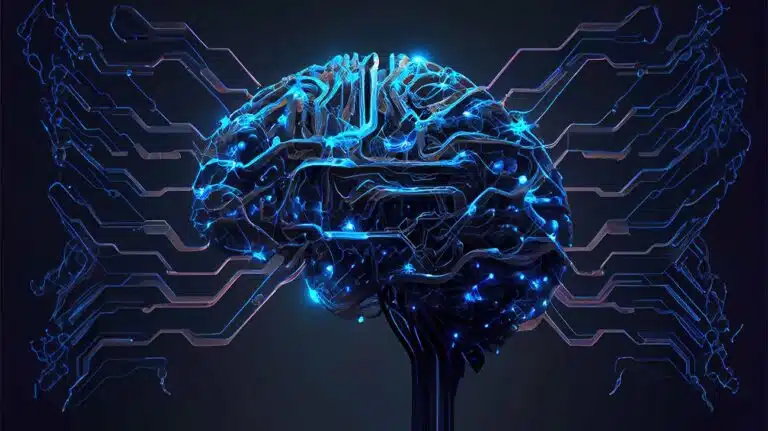The Effects Of Drugs On The Blood-Brain Barrier
- How Do Drugs Affect The Blood-Brain Barrier?
- Which Drugs Cross The Blood-Brain Barrier?
- Long-Term Effects Of Drugs On The Blood-Brain Barrier

The blood-brain barrier (BBB) is a network of endothelial cells between the brain and the central nervous system (CNS). This single layer of cells tightly regulates what can go into the brain. Its job is maintaining a stable environment so your brain can function optimally.
The BBB allows the entry of essential nutrients and some gases, water, and lipid-soluble molecules that the brain needs to operate efficiently. It keeps out toxins to prevent damage to the central nervous system.
Drugs of abuse can weaken the blood-brain barrier, putting you at risk for neurotoxicity and nervous system diseases.
How Do Drugs Affect The Blood-Brain Barrier?
Drugs increase the permeability of the blood-brain barrier, which means more things can pass through it. This opens the door for toxins and free radicals (unstable molecules).
Disruption of BBB function causes brain inflammation, which further increases BBB permeability. The central nervous system becomes even more vulnerable to foreign substances.
A weakened blood-brain barrier also leads to changes in BBB transport pathways (how messages are sent through the nervous system) and disruption of cell interactions (how cells communicate and work together).
Some of these disruptions add to the addictive nature of drugs. Repeatedly abusing a drug creates new pathways and links different neurons that feed the urge to use drugs.
Which Drugs Cross The Blood-Brain Barrier?
All drugs of abuse cross the blood-brain barrier. They must get through the BBB and into the central nervous system to be effective. Prescription stimulants and opioids can be helpful and relatively safe if you take them as prescribed. The problem comes with substance abuse.
A 2020 study published in Frontiers in Neuroscience outlines the damage that cocaine, methamphetamine, morphine, heroin, nicotine, and alcohol can cause to the blood-brain barrier.
Cocaine abuse is associated with a 50 percent increase in BBB permeability:
- Cocaine prevents the brain from reabsorbing dopamine (a monoamine neurotransmitter and hormone).
- This reinforces drug-seeking behavior and allows an imbalance of unstable molecules (free radicals) in the brain.
- The result is increased inflammation and low antioxidant levels, which lead to more unstable reactions, called oxidative stress.
Methamphetamine is highly fat soluble and crosses the BBB quickly:
- Meth reverses the way norepinephrine, serotonin, and dopamine move. These hormones affect your mood, memory, and sleep patterns.
- Meth abuse can permanently impair how serotonin and dopamine move in the brain. The brain structure will change and the brain will stop producing these hormones naturally. Without meth, they’ll be depleted.
- Abusing meth causes inflammation, brain swelling, and dangerously high body temperature.
Morphine and heroin are opioids that negatively affect the BBB:
- Morphine is the main metabolite of heroin and is likely responsible for the drug’s adverse effects on the blood-brain barrier.
- Morphine alters BBB balance (homeostasis) and permeability.
- Morphine abuse causes inflammation (pro-inflammatory small protein activity – peptides or amino acids) and messes with the regulation of calcium release between cells.
- These imbalances can lead to neurotoxicity and nerve diseases.
- Heroin crosses the BBB more rapidly than morphine and in higher concentrations.
Nicotine also crosses the BBB quickly because of its fat solubility:
- Nicotine may cause an electrolyte (ion) imbalance.
- It can lead to issues with low blood flow or low oxygen levels (ischemic hypoxia).
- Stroke-associated brain swelling can occur with nicotine abuse.
- Prolonged nicotine use can damage neurons (brain messengers), which stops signals, leading to numbness or muscles not working.
Alcohol abuse has many damaging effects on the brain:
- the loss of neurons in the blood-brain barrier
- the weakening of the blood-brain barrier
- changes in neuroplasticity (your brain’s ability to change and grow and learn)
- a weakened communication system (how cells send messages)
- white blood cells entering the brain, which can cause infection or inflammation
- increased oxidative stress
Other drugs of abuse, like benzodiazepines, also cross the blood-brain barrier and make it work less effectively. The longer you abuse drugs or alcohol, the more it affects your brain circuitry and raises your risk for severe complications and disease.
Long-Term Effects Of Drugs On The Blood-Brain Barrier
Drugs weaken the blood-brain barrier, letting toxins enter the brain and nervous system.
These toxins can cause nervous system diseases, such as:
- HIV: attacks your body’s immune system
- Alzheimer’s disease: marked by memory loss and confusion
- Parkinson’s disease: causes you to lose control over bodily movement
- Multiple sclerosis: your immune system destroys protective nerve coverings
- Ischemia: a lack of adequate blood flow to part of your body
- Brain tumors: abnormal tissue masses that may be cancerous
In many cases, BBB permeability can be reversed if you stop using drugs or alcohol and adopt a healthy lifestyle. Your brain can adapt and create new connections that encourage well-being rather than substance abuse.
But there is no cure for diseases like HIV or Alzheimer’s. If you or a loved one are abusing drugs or alcohol, don’t wait to get help.
At Ark Behavioral Health, we offer personalized care for alcohol and drug addiction that gets to the root of the problem. Through evidence-based therapies, exercise, nutrition, and 24-hour support, we’ll guide you toward recovery.
Contact one of our specialists and start your journey today.
Written by Ark Behavioral Health Editorial Team
©2024 Ark National Holdings, LLC. | All Rights Reserved.
This page does not provide medical advice.
Frontiers in Neuroscience - https://www.frontiersin.org/articles/10.3389/fnins.2020.00513/full
Journal of Neuroimmune Pharmacology - Blood-brain barrier: structural components and function under physiologic and pathologic conditions
Questions About Treatment?
Ark Behavioral Health offers 100% confidential substance abuse assessment and treatment placement tailored to your individual needs. Achieve long-term recovery.
100% confidential. We respect your privacy.
Prefer Texting?
Our friendly support team is here to chat 24/7. Opt out any time.







 Learn More
Learn More








